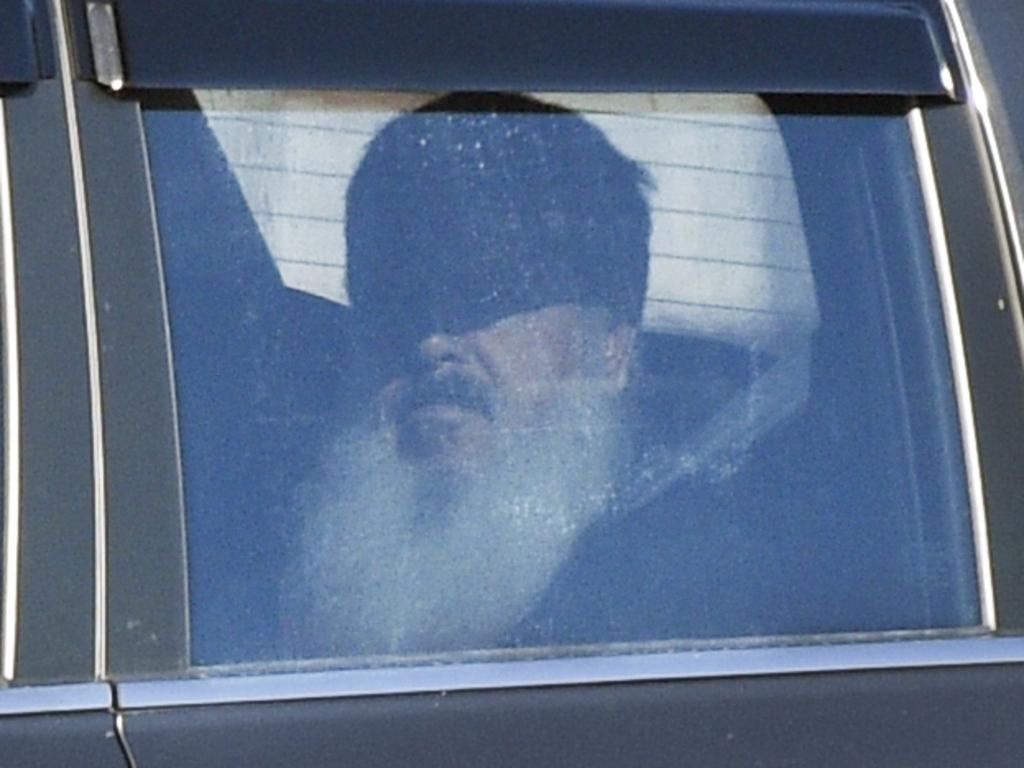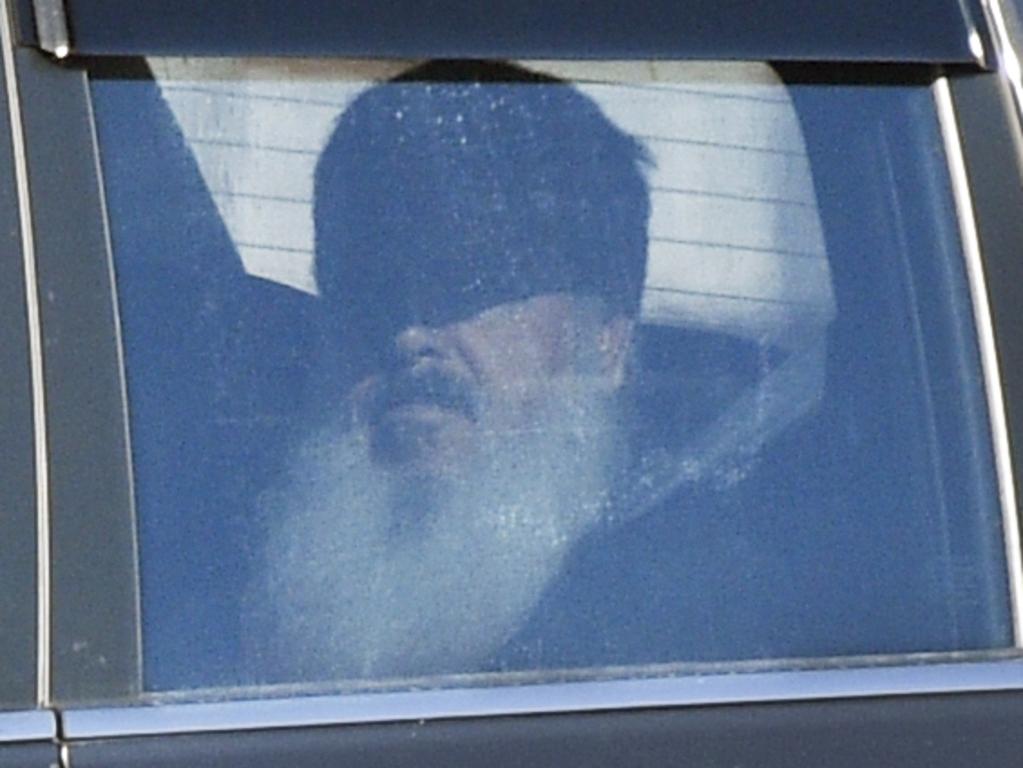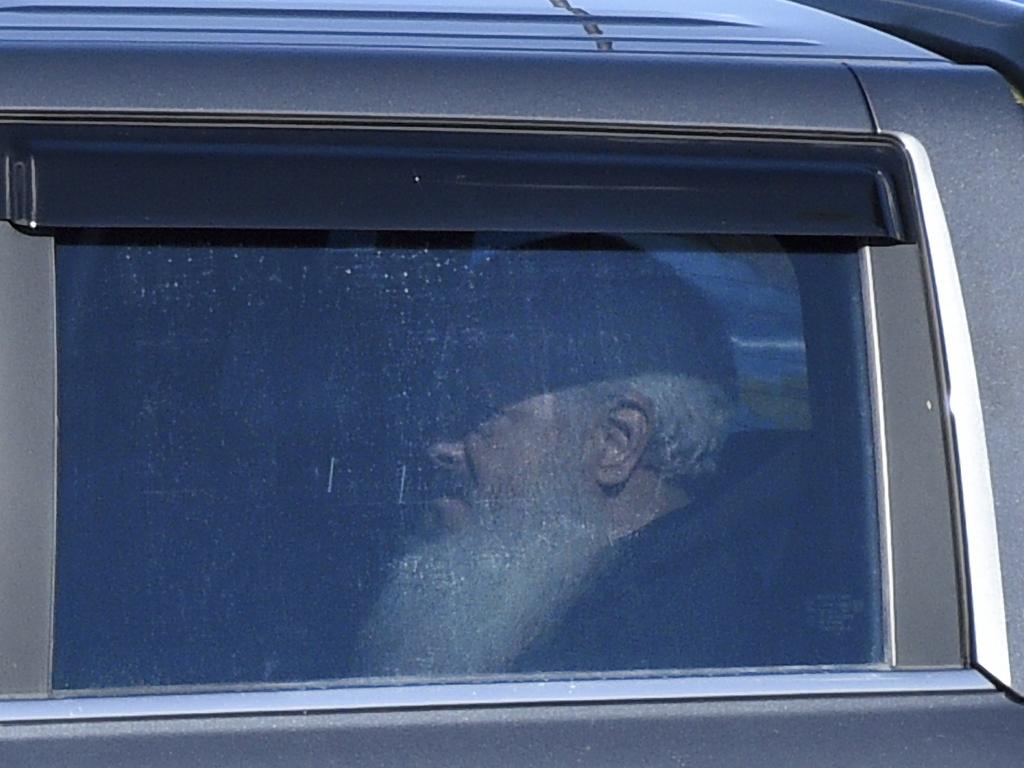Recently freed terrorist Abdul Benbrika is costing taxpayers a bomb
Between the trials, the surveillance, the police and ASIO investigations, the taxpayer bill for this indolent, venomous and malevolent liar is still being added up.
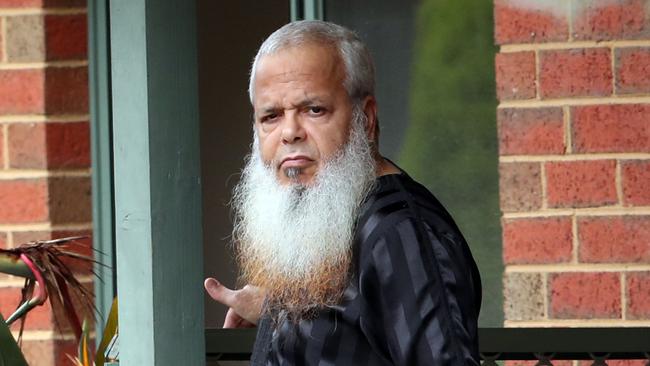
Prime minister Bob Hawke changed so many lives, and even our country, when he abruptly offered asylum to 42,000 Chinese students after Chinese premier Li Peng ordered tanks into Beijing’s Tiananmen Square to end student demonstrations on the night of June 3, 1989.
In tears, Hawke on June 9 addressed the nation describing how Chinese troops swarmed over the square “bayoneting or shooting anybody who was still alive”.
“They had orders that nobody in the square be spared, and children and young girls were slaughtered,” he said, breaking down at this point. “Anti-personnel carriers and tanks then ran backwards and forwards over the bodies of the slain until they were reduced to pulp, after which bulldozers moved in to push the remains into piles which were then incinerated by troops with flamethrowers.” (It soon emerged Hawke had been misled on these details, but they are the reason he made the offer.)
Like most eager newcomers to Australia, the young Chinese who took up the opportunity have contributed to life here ever since. Starting businesses, working in education, in healthcare and elsewhere, and starting their own families – at least in Australia they could have more than one child.
As well as those students, another 120,000 people settled in Australia in 1989. Most of them just make their way. Few of them make waves, even fewer make the news.
It is a requirement of statehood that a nation police its borders and vet those who would wish to share in the Christian-inspired, tolerant liberal democracy we enjoy and that is the envy of the world.
But in 1989, one man got under our guard, arrived and illegally stayed and later decided that on behalf of his god he would kill as many of us as possible.
He was Abdul Nacer Benbrika, an indolent, venomous and malevolent liar – we could not trust him then and would be well advised not to do so today.
Benbrika has become Australia’s most expensive immigrant. The year he arrived on our shores, ASIO’s annual budget was just more than $32m. Because of Benbrika and men like him, ASIO’s 2023-24 budget is almost $600m.
Controversially, on December 19, Benbrika was freed from jail after serving 15 years, having been convicted in 2008 for organising a terrorist cell and making plans to kill as many Australians as it could.
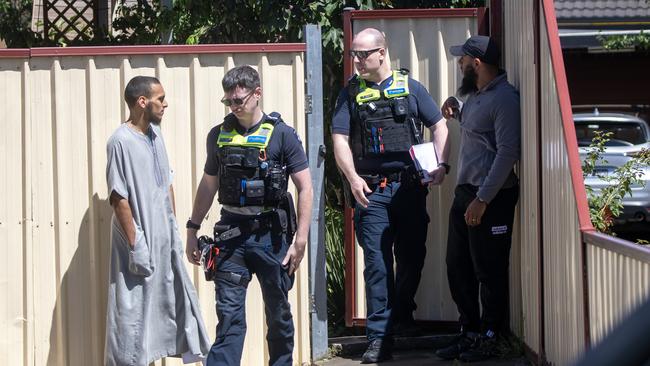
His gang discussed assassinating prime minister John Howard, bombing the MCG on AFL grand final day, or perhaps Flemington Racecourse on Melbourne Cup Day. Maybe even Melbourne’s Crown Casino on the day of the Formula One Grand Prix. They couldn’t quite decide.
He said on release: “I’ve thought about it and I’ve learned a huge lesson. You have nothing to worry (about) now.” He added that people should “know that Nacer is not what he was”, a comment that reminded many of us of Mandy Rice-Davies’s legendary riposte during Britain’s notorious Profumo trial when she was told Lord Astor denied an affair with her: “Well he would, wouldn’t he?”
And Benbrika has said it before. While lying to the Immigration Review Tribunal after overstaying a one-month visa issued to him in May 1989, he said one of the reasons he wanted to stay here was because of his “love of the Australian lifestyle”.
He managed to have his visa extended at least twice before being declared a prohibited non-citizen. Three times we acted to expel him from Australia but, unaccountably, Benbrika was given a permanent residence visa in 1996 and two years later became a citizen of the country to whose lifestyle he claimed to be so attached.
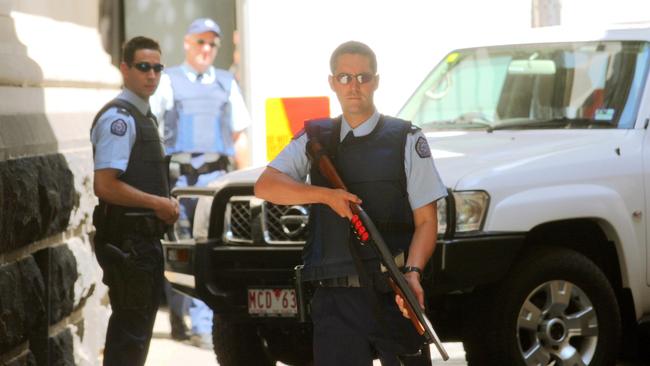
But Islamic fundamentalists such as Benbrika are enemies of civilisation and modernity. So implacably opposed was Benbrika to our free society that he fell under the spell of Osama bin Laden, who at the time Benbrika was fighting to stay here had begun his export of holy-war terror across the globe after helping evict the Soviet Union from Afghanistan.
Bin Laden’s group first gained attention in a bold plan to bring down New York’s World Trade Centre on February 26, 1993. Six men drove a 606kg fertiliser bomb into the car park beneath the north tower hoping the blast would fatally weaken its foundations, collapsing it into the south tower and killing most of the 50,000 people working there that Friday. In the event six people were killed, including a seven-months pregnant secretary.
Bin Laden decided he would have to do better. A later strike was the bombings of the US embassies in Nairobi, Kenya, and Dar es Salaam, Tanzania, on August 7, 1998, that killed 200 and injured 4500.
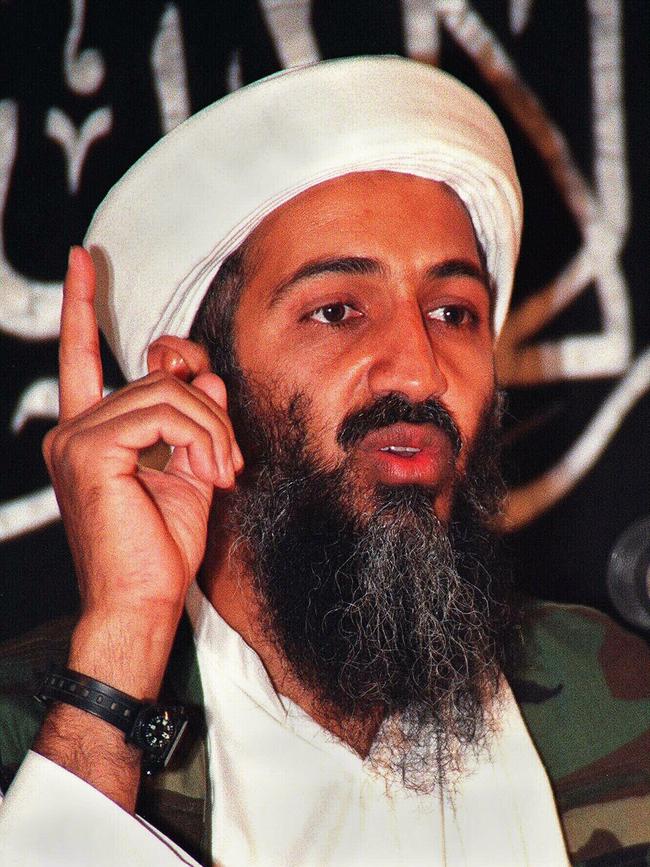
Within a year bin Laden was on the FBI’s Ten Most Wanted list. A plot to bomb Los Angeles International Airport on New Year’s Eve 1999 was uncovered in time, but bin Laden’s operatives planted a bomb on the new destroyer USS Cole soon after, killing 17 sailors and injuring 40.
Emboldened, bin Laden’s men again set their sights on the World Trade Centre towers in 2001 and we all know what happened on September 11 when he claimed the lives of about 3000 innocents.
It was after this, and safely ensconced in Australia as a citizen, that Benbrika showed his true colours. Speaking to the ABC and by now calling himself Sheik Benbrika, he spoke of his support for bin Laden and of his hostility to anything other than extreme Islam.
“Osama bin Laden, he’s a great man,” said Benbrika, vigorously nodding his head. “I don’t accept all other religions except the religion of Islam.”

The last census found that 3.2 per cent of Australians claimed to be Muslims. Benbrika and his gang set out to show the other 96.8 per cent of Australians what they thought of them.
His provocative TV interview sparked interest in him from ASIO. They raided his home and started carefully monitoring his movements, mates and motives.
Ill-informed commentator Waleed Aly dismissed Benbrika’s groups as “a splinter of a splinter of a splinter”. But when it comes to our open societies, a splinter – even a one-man cell of Islamic hate – can be all you need. We’ll never know how close Benbrika and his friends went to proving that. We didn’t know it at the time but, following a tip-off, various agencies were already investigating Benbrika and others. The meter had started ticking for the Australian taxpayer. It has never stopped. And it never will.
Early investigations by the Australian Federal Police, ASIO and the Victoria Police indicated Benbrika was already working with a similarly minded Sydney gang and Operation Pendennis was launched with the above agencies and the NSW Police. It remains the longest terrorist investigation in the country’s history. And the most expensive. As far as we know.
The exhaustive and costly manpower required to monitor Benbrika and his gang included 626 eight-hour days divided between the AFP, ASIO and the Victoria Police. They followed his gang members as they tested bombs in rural NSW and country Victoria and when Benbrika flew to Sydney under false names to plan his grand attacks.
A smirking Benbrika was covertly photographed arrived at Sydney airport. He was secretly recorded speaking to his Sydney team members, telling them “we want to die for jihad … everyone has to prepare himself. Or to die or be jailed. Allah know best. I don’t want this kind of life. Give that to them.”
He added that in his mass-murder attacks he wanted them to do “maximum damage, maximum damage. Damage their buildings with everything, and damage their lives just to show them.”
Recording the gang’s calls and intercepting their other communications was particularly costly. The Victoria Police gathered 26 gigabytes of internet traffic between the men. A single gigabyte is equal to 166 million words. To put that into perspective, Leo Tolstoy’s legendarily lengthy masterpiece War and Peace is 587,287 words. The average person would take more than a year to read 166 million words. It is not possible to calculate the vast financial burden on Victoria Police as they closed in on the would-be assassin and terror boss.
Also, the AFP intercepted 97,480 telephone calls between the gang members, who spoke in a mix of English and Arabic. Every word had to be transcribed and translated. Back then this was not automated. In all, the AFP held 16,000 hours of conversations – equivalent to about two years’ listening, and, like Spanish and Japanese, Arabic is spoken quickly. It is understood the AFP used a mix of staff and contractors to translate these calls.
The AFP will not say how much this exercise cost but applying commercial rates – and assuming they were half in English – this could have cost more than $30m.
Once charged, put on trial and found guilty – Benbrika lied again and claimed he was innocent – Legal Aid’s bills also started rising. It paid for 13 lawyers and four senior counsel to represent the men. Taxpayer-funded Legal Aid Victoria then had a commonwealth defence budget of $33m and perhaps $8m went on the Benbrika gang.
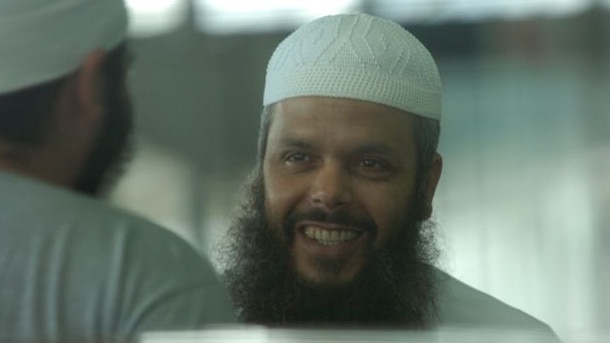
The trial itself cost tens of millions. Benbrika and others were found guilty and Benbrika was jailed for 15 years. The Productivity Commission estimates that on average it costs $154,000 to house a Victorian prisoner for a year.
Well into his sentence, Benbrika was shifted from Port Phillip Prison in Melbourne’s west to the maximum security Barwon Prison near Geelong because it was suspected he was spreading his jihadist ideas. His jail time alone cost towards $3m. That’s just Benbrika, and does not include the time spent in jail by the men he inspired.
When his head sentence expired in December 2020, Justice Andrew Tinney, sitting in the Victorian Supreme Court, ruled that Benbrika would stay in jail another three years and was cynical of Benbrika’s claims to have changed, which had a “whiff of implausibility” about them. He believed Benbrika had narcissistic traits and a “well-developed sense of religious and intellectual superiority”, adding that he believed the prisoner had “not renounced or changed his previous beliefs which justified violence in the name of Allah”.
That same year, then home affairs minister Peter Dutton revoked Benbrika’s citizenship to protect Australians from the danger posed by the convicted terrorist. The High Court restored his citizenship last October. On December 19 he was freed from jail on a one-year extended supervision order which, as The Australian reported, gives “police the power to monitor his movements, internet and communications usage, living arrangements and associations”. (An expert in the psychology of terrorism said Benbrika posed a low risk of reoffending.)
But such surveillance does not come cheap. In an exclusive report by Cameron Stewart in this newspaper a decade ago, he revealed that it would cost taxpayers $8m (about $10.5m in today’s dollars) to “have a single Australian jihadist monitored around the clock by security agencies”.
That’s apparently what we’ll be doing with Benbrika, and understandably so. Deradicalisation is a contested idea. Britain’s Independent Reviewer of Terrorism Legislation, Jonathan Hall KC, says there is no magic bullet when it comes to convicted extremists and that, as with sex offenders, they are devious and would say what the authorities wanted to hear.
Benbrika is aged 63 or 64 – his birthdate seems never to have been established – and can expect to live another 20 years or more, by which time he may have cost Australia more than $200m.


